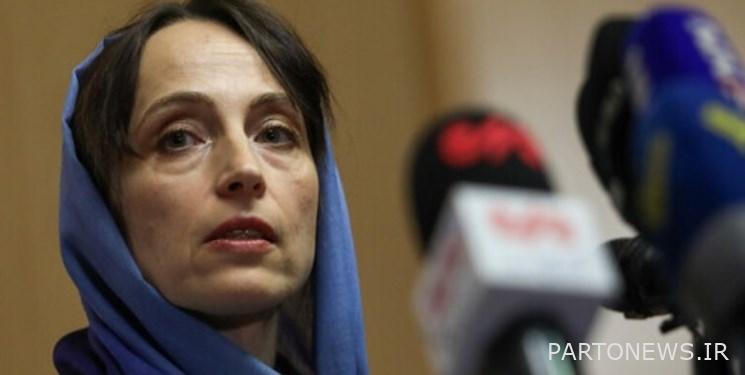UN Reporter: Iran’s economic sanctions have led to rising inflation and a shortage of basic necessities

According to Fars News Agency, quoting the Human Rights Headquarters, the official website of the United Nations, the statement of Alena Dohan published the report of the UN Special Rapporteur on unilateral and secondary sanctions against Iran.
The statement said: “According to a UN human rights expert, the complex set of unilateral sanctions against Iran, combined with secondary sanctions against individuals and third parties, excessive sanctions and zero risk reduction policies by some companies and financial institutions,” the statement said. It has intensified the existing human and economic challenges and has negatively affected the lives of people, especially the most vulnerable sections of society.
The statement added: “At the end of her 12-day visit to Iran, Alena Dohan, the UN Special Rapporteur on the Negative Impact of Unilateral Coercion on Human Rights, spoke to patients with specific illnesses and disabilities about the Having access to the medicines and assistive devices they need, he has heard sad stories.
“I am deeply concerned about the life-threatening consequences of the staggering costs of medicine and specialized medical equipment, and in some cases, their non-availability due to trade and financial constraints due to sanctions,” he said. “According to the reports I received, this situation is due to the reluctance of foreign companies to supply these goods, which is also due to their fear of possible consequences, including criminal prosecution and financial penalties.”
“Sanctions imposed on vital economic sectors and a large number of Iranian national financial institutions and companies have led to a sharp decline in government revenues, rising inflation, the spread of poverty and a lack of resources to meet the basic needs of the needy,” Dohan added.
In his statement, the Special Rapporteur referred to several other areas affected by unilateral and extreme sanctions, including the further maintenance and development of the country’s basic infrastructure, the difficulties of expanding social protection programs in line with rising prices and the unemployment rate, including In support of Afghanistan’s growing refugee population; Barriers to commercial and industrial development due to shortage of raw materials, impossibility of international payments and restrictions on access to new technologies, worsening environmental security situation; Challenges related to prevention, response and recovery in natural disasters due to the ban on the import of specialized equipment and humanitarian measures; Increasing challenges in the operations of international and local NGOs and humanitarian activists; “Obstacles to Iran’s interaction in international cooperation, including in the fields of academia, artistic and cultural heritage, sports, and the country’s general interaction with international organizations and associations due to travel bans and the impossibility of paying the relevant membership fees.”
The independent expert also expressed concern that the least effect of the unilateral sanctions available as a punitive measure has been breaches of obligations under international and regional human rights instruments, many of which are of an indefinite nature, including procedural guarantees and presumption of innocence.
“Under international human rights law, governments have a duty to ensure that any activity under their jurisdiction or control does not lead to a violation of human rights, and I call on the governments, especially the United States, to do so, including through a peaceful settlement,” Dohan said. “International disputes and the abolition of all unilateral measures, especially in areas that affect the human rights and lives of all Iranians, comply with the principles and norms of international law.”
The Independent Rapporteur continues his recommendations on the issue of excessive unilateral sanctions by companies and financial institutions, access to new information and technologies, increased participation of international organizations for humanitarian purposes and continuous monitoring of the negative effects of unilateral coercive measures on human rights enjoyment, asset liberalization. “Foreigners blocked Iran’s financial institutions, conducting multilateral talks to formulate guidelines on secondary sanctions, the effects of excessive sanctions on human rights, and the establishment of possible mechanisms for redress, compensation and compensation.”
Despite the government’s efforts to reduce the negative effects of unilateral coercive measures (sanctions) on various segments of society, especially vulnerable groups, the economic problems caused by sanctions along with the continuing effects of the Covid-19 epidemic, these sanctions have multifaceted and cumulative effects in all parts of the country. Has laid.
The Special Rapporteur stressed that although Iran’s actions had reduced the direct negative effects of sanctions on the enjoyment of human rights, the current situation should not be used as a basis for legitimizing and legalizing the imposition of unilateral sanctions.
During his mission in Iran, Dohan met with representatives of state and provincial government agencies, NGOs, associations, humanitarian activists, businesses, UN agencies, universities, as well as the diplomatic community.
In addition to Tehran, he also met in Karaj and Isfahan.
The Special Rapporteur will submit a report on his mission to the Human Rights Council in September 2022.
End of message
You can edit this post
Suggest this for the front page

